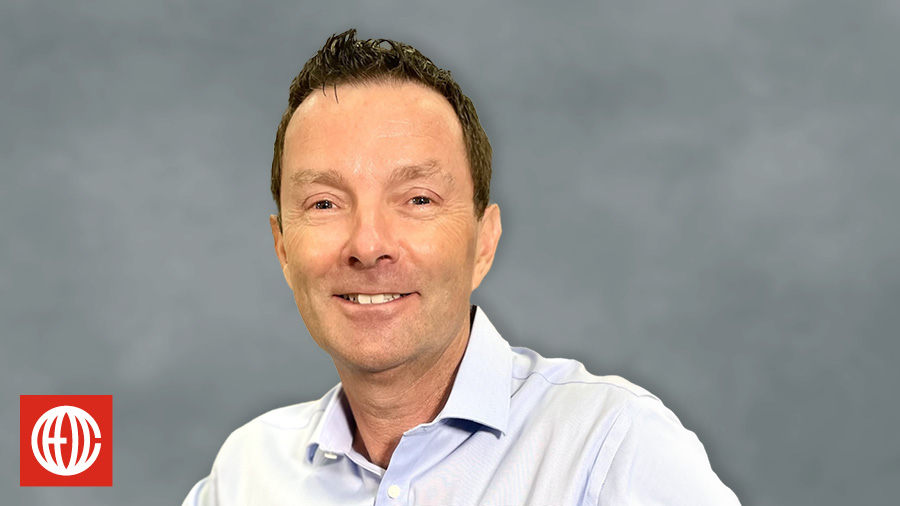
Guest: Dr. Gill Heart, founder and CEO of Mind in Control.
Episode in a Tweet: A former Israel Defense Force captain teaches CEOs how to stay cool under enemy fire.
Quick Background:Dr. Gill Heart served more than seven years in the Israel Defense Force’s most elite and stressful unit. He went undercover behind enemy lines and came face-to-face with life-or-death situations. After receiving his Ph.D. in Biomedical Engineering from Imperial College, London University, Dr. Heart moved to the United States and became an entrepreneur. He founded and successfully managed venture-backed medical device startups that were primarily focused on neurological and brain applications. Now Dr. Heart has combined his military training, his study of Jewish mysticism and philosophy, and his business acumen to create a training regimen to help people manage stress in both their personal and professional lives.
On today’s show, Dr. Gill Heart discusses the mental training that is necessary to deal effectively with extremely stressful situations. CEOs may not be able to control when a cash flow crisis or social media firestorm flares up. But we can control how we react to stressful situations so that both our businesses and our bodies keep executing at a high level.
Key Insights from Dr. Gill Heart on Handling Enemy Fire
1. It’s all in your brain.
Stress is not some uncontrollable, external thing that happens to us. It’s a neurological response to outside stimuli involving two parts of our brain.
“The area just before the forehead, the prefrontal cortex, its responsibility is for executive decisions and analytical processes,” explains Dr. Heart. “It’sthe CEO of the brain: calm, focused, calculated, goal-driven. A very different area in the brain, the amygdala, is responsible for our response to triggers, especially fear. When we are triggered, the amygdala hijacks control from the prefrontal cortex. Literally hijacks it by controlling the blood supply to the prefrontal cortex, and practically shutting it down.”
Dr. Heart says this “hijacking” can take less than one one-thousandth of a second, after which our ability to analyze a situation and make rational decisions plummets. It takes the body at least 18 minutes to normalize and put the prefrontal cortex back in charge. Sometimes it can take up to four hours! Can your business afford to have you making irrational, emotional decisions for half a workday?
2. Identify your stress responses.
One key component of Dr. Heart’s training is to pick up on what he calls “personal indicators” of stress. These are the physiological cues your body sends when you’re starting to give in to stress. Shallow breathing, sweating, and a rapid heart rate are common early warning signs, but everyone is different. “When I am stressed, I feel pain in certain joints,” Dr. Heart says, “or some people report shoulder tension or lower back pain. There are many, many different physiological, emotional, and mental indications.”
Once you’ve identified what your personal indicators are, try counting them throughout the day. If you’re regularly racking up double-digit stress events, the cumulative effect on your health can be serious.
“Research shows that yes, stress can kill,” Dr. Heart warns. “As a short-term example, the amygdala hijacking the brain can reduce blood flow to the digestive system. 80% of the immune system is in the digestive system.” Simply put, the more stressed you are, the weaker your body is going to be, and the more susceptible to illness. How many sick days before your business starts to suffer too?
3. Identify your triggers.
So what’s the most common stress trigger among CEOs Dr. Heart has worked with?
“Fear. Fear of change. Fear associated with business growth. Fear of letting go of control, delegating. Fear of cash flow. Avoiding conflict.”
So, in other words: vision, cash, people, and managing relationships all cause stress. All of which are executive-level responsibilities that the CEO has to manage personally. No wonder we’re all so stressed!
Dr. Heart and I have both seen struggling CEOs respond to these stressors by succumbing to toxic attitudes towards the job and employees and wallowing in worst-case scenarios. But if you scurry under your desk or blow your top at managers every time there’s a hiccup in your operations, maybe you’re not cut out for the big job. Being an effective CEO takes real courage. That means confronting your fears as a leader, making the tough calls when necessary, and keeping your team inspired and motivated as you work through problems on your way to bigger and better things.
4. Train how your body responds.
If you want to complete an IRONMAN triathlon, you do running, cycling, and endurance training to prepare your body.
Dr. Heart believes tackling stress is no different. Stress is a physical process, so we can combine mental and physical training to keep that process from hijacking our brains, clouding our decision-making, and battering our bodies.
“We train you to change what the amygdala registers as a triggering event in order for you to remain prefrontal cortex-driven and respond more calmly,” Dr. Heart explains. “The basic building block of the training is what I call mind tools. These are unique thought processes that we use to override what triggers you, and change your habitual response to stress.In other words, I’m training you to distinguish between what is a real threat and what is just your imagined or perceived threat.”
Dr. Heart trains CEOs to actively engage with stressors rather than avoid them. For example, you can’t pretend you’re out of the office every time a major customer who’s also a bit of a pain calls up with another nit-picky complaint. After all, no matter how unreasonable the customer is, this is a key relationship that can make or break your business. Rather than try to avoid a difficult conversation because you’re worried it’s going to stress you out, Dr. Heart would recommend that you engage with that customer directly. By confronting your fear and your stress instead of trying to push it aside, you’ll gradually realize that you can control how you react to that customer and work through the issue without letting stress take over.
“What we do is carefully engage you in what triggers you, gradually increase your exposure to these triggers, and condition you under these stressful circumstances to respond differently, to differentiate between what fears are real, and what’s internally generated. Youlearn to handle these interactions much better. It’s in your best interest, and in the business’ best interest.”
5. Practice, report, and repeat.
Stress management is no different than any other aspect of your performance as CEO: you have to set targets, keep track of your progress, and commit to doing better.
“Practice is key,” Dr. Heart says. “You practice at home, and more importantly at work. Practically, we speak once a week. We spend a couple of minutes reviewing the past week’s performance, and we learn a new mind tool. Every three sessions we pause, and we measure results. This is very important. I know what it means to be CEO. We want results. Results will come if you practice. If you don’t practice correctly, it’s my responsibility to correct it and deliver us to where we need to be.”
Those results can have a profound impact on a CEO’s personal and professional life, as Dr. Heart saw recently when working with a client referred to him by CEO Coaching International.
“This client went through a difficult divorce and experienced significant downturn in terms of business revenue,” Dr. Heart says. “One of his challenges was that he was thinking and living the worst-case scenario, which resulted, of course, from the stress he was under. We trained him to take a look at the full spectrum of possible scenarios, including the worst-case scenario. He was trained to do that in a methodical, calculated, and data-driven manner, avoiding his habitual response to lock into the worst-case scenario as the true and only reality. His decision-making process improved and, as a result, he was able to get the business back on track. I see complete synergy between Mind in Control training and CEO Coaching International. The value-add of my training is focused on changing the CEO’s habitual emotional response to stress. Dealing with the business sidefalls on the shoulders of CEO Coaching International. I see clients progress on the personal side, but equally important, I am a witness to the progress they make on the business side, which is the direct result of the amazing work that the CEO Coaching International coaches do with them. That’s beautiful to see.”
Top Takeaways
1. Keep it real.Stress isn’t some magical force. It’s a real process within your body that you can learn to control.
2. Know yourself.When you feel a stress response coming, take a breath, regroup, and try to keep your emotions from hijacking your decision-making.
3. Face your fears.If you try to avoid people or situations that stress you out, they’re going to keep stressing you out. Confront those stressors head-on and you’ll find you have more power than you realize.
Transcript: Download the full transcript here.
About CEO Coaching International
CEO Coaching International works with CEOs and their leadership teams to achieve extraordinary results quarter after quarter, year after year. Known globally for its success in coaching growth-focused entrepreneurs to meaningful exits, CEO Coaching International has coached more than 1,000 CEOs and entrepreneurs in more than 60 countries and 45 industries. The coaches at CEO Coaching International are former CEOs, presidents, or executives who have made BIG happen. The firm’s coaches have led double-digit sales and profit growth in businesses ranging in size from startups to over $10 billion, and many are founders that have led their companies through successful eight, nine, and ten-figure exits. Companies working with CEO Coaching International for two years or more have experienced an average revenue CAGR of 31% (2.6X the U.S. average) and an average EBITDA CAGR of 52.3% (more than 5X the U.S. average).
Learn more about executive coaching | Meet our world-class coaches








